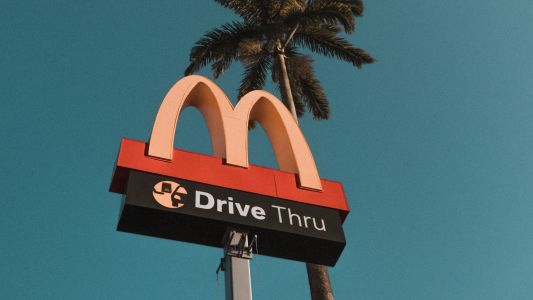When I was on the road between appointments before Covid 19, I’d find a Starbucks where I could have a cup of coffee, get on the free Wi-Fi and do some work. Then one day, I read that Starbucks’ biggest competitor isn’t Peet’s or Coffee Bean & Tea Leaf. It’s McDonald’s.
I realized how much sense that makes, so I started going there instead: Many more of them around, much easier parking, same free Wi-Fi and about the same coffee (I take mine black). And definitely a much more diverse and interesting crowd. A few times I bought lunch for guys down on their luck (that’s another story). I felt secure and relaxed, surrounded by people wolfing down Big Macs. But I was being tricked: Just a few yards away, at the drive-through window, McDonald’s is surreptitiously collecting America’s private information.
Like most tales of intrigue, this one follows a twisted path.
In 2019, McDonald’s bought a company called Apprente that makes voice recognition software. The idea was to automate the drive-through ordering kiosk to speed up taking orders. Instead of talking to a bored, minimum-wage worker, you’re talking to a machine that translates your words into an order on a screen. But McDonald’s took it a step further. Their kiosk’s software is set up to extract, record and remember the customer’s voiceprint biometrics – – pitch, volume and duration, as well as parameters seeking identifying information such as age, gender, accent, nationality, and national origin. All that from you saying, “I want a number four.” But there’s more.
The whole thing is tied into license plate scanning so that McDonald’s has individual identification for you and what you’re likely to order before your car comes to a stop. And if you pay with a credit card, there’s even more information. And all of this goes to McDonald’s central database. That way, if you roll into a McDonald’s drive through anywhere in the U.S., your license plate triggers your private data and Ronald McDonald will be waiting for you.
How big a deal is this? Let’s talk numbers: As of June 13, 2021, there were 332,862,766 people in the United States. McDonald’s has about 25 million customers per day. Before Covid 19, about 65% of their business was done at the drive-through. During Covid 19 – – 100%. Let’s do the math: Every 13.5 days, a number of people larger than the U.S. population orders from the McDonald’s drive-through kiosk. How long would it take McDonald’s to collect personal information on more than half the country? I don’t know, but I doubt it would take three months.
Now this is pretty creepy, but McDonald’s wasn’t first to the party. Not by a long shot. They were preceded by food conglomerate Mondelēz ($26 billion annual sales). One of their divisions is Nabisco, which makes Oreo Cookies – – the #1 selling cookie in the world. It came out that Mondelēz was experimenting with cameras hidden in the grocery store shelf so they can monitor how your eyes move from product to product while you’re trying to decide between Ritz Crackers and Wheat Thins (also Nabisco brands). There’s no follow-up information about how far they rolled out that program. I wonder why?
And you know how sometimes there’s a small red plastic box attached to the front of your shopping cart? It’s there not to help the store find the cart if someone takes it out of the parking lot. It’s there to track your path as you travel through the store. This helps the retailer put the most profitable impulse items in places where they know you’re sure to pass by.
Look at the back wall of a grocery store, just below the ceiling. If you see a row of mirrors, those are one-way viewing panes. Some of them have cameras behind them, and some of them just have creepy people.
And don’t forget the cameras you can see in the parking lot. We see those on Forensic Files TV all the time.
If you do a Google search and hover your cursor over a product (i.e., you don’t click on it), Google records the hovering data and sells it to the highest bidder.
And how about when you give your DNA to Ancestry.com.
The Food Lawyers® take
When we think of invasions of privacy, we visualize phishing e-mails and Russian internet hackers locking companies out of their data and demanding Bitcoin. But that’s not the way it happens – – one big event. It’s actually a bunch of little events – – death by a thousand cuts. Amazon, McDonald’s, Mondelēz, Google, Facebook, Twitter – – each one takes a slice out of your privacy, every day, in different ways.
So, remember: The next time you’re looking at a box of Nabisco Chips Ahoy! on the grocery store shelf, be sure to smile, because someone may be looking back.

